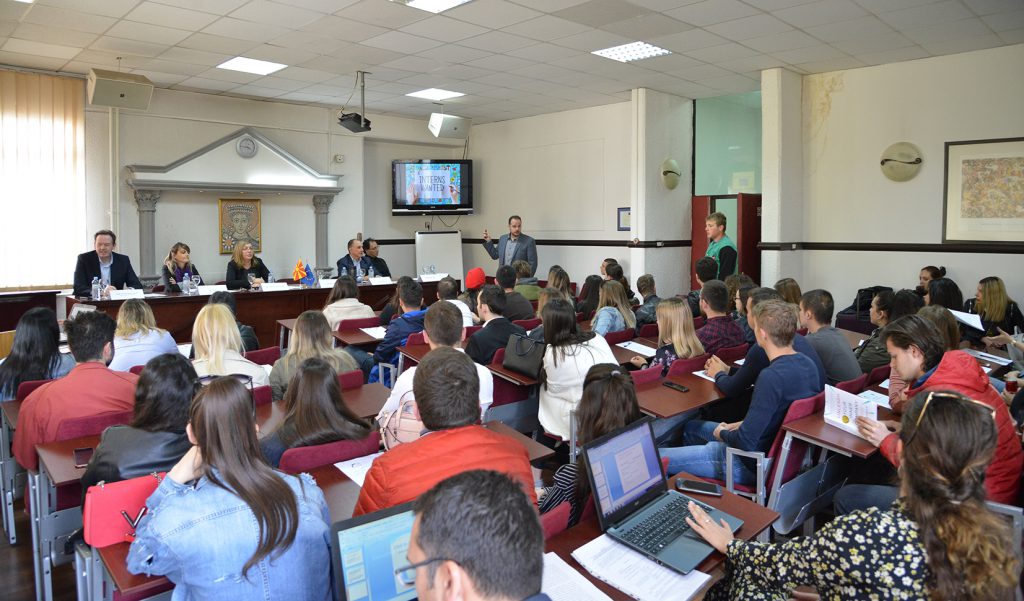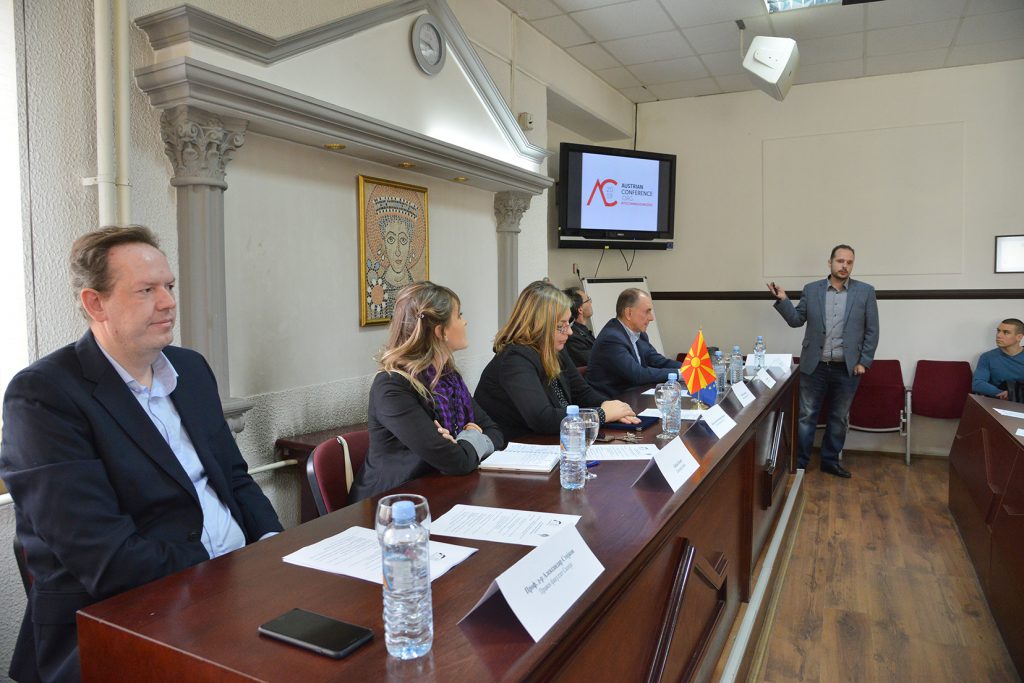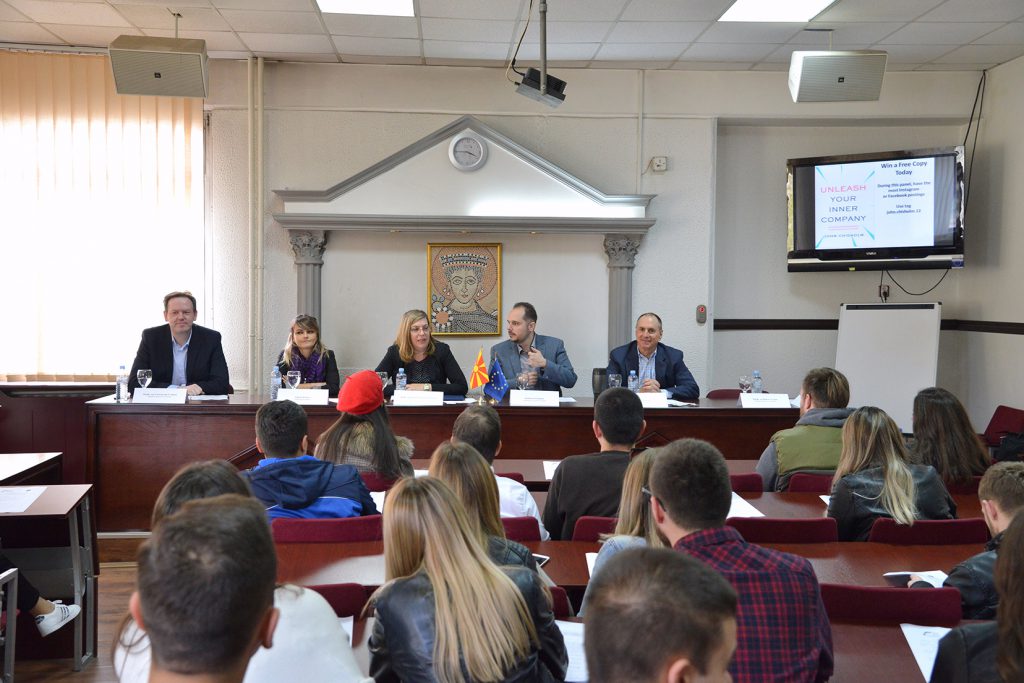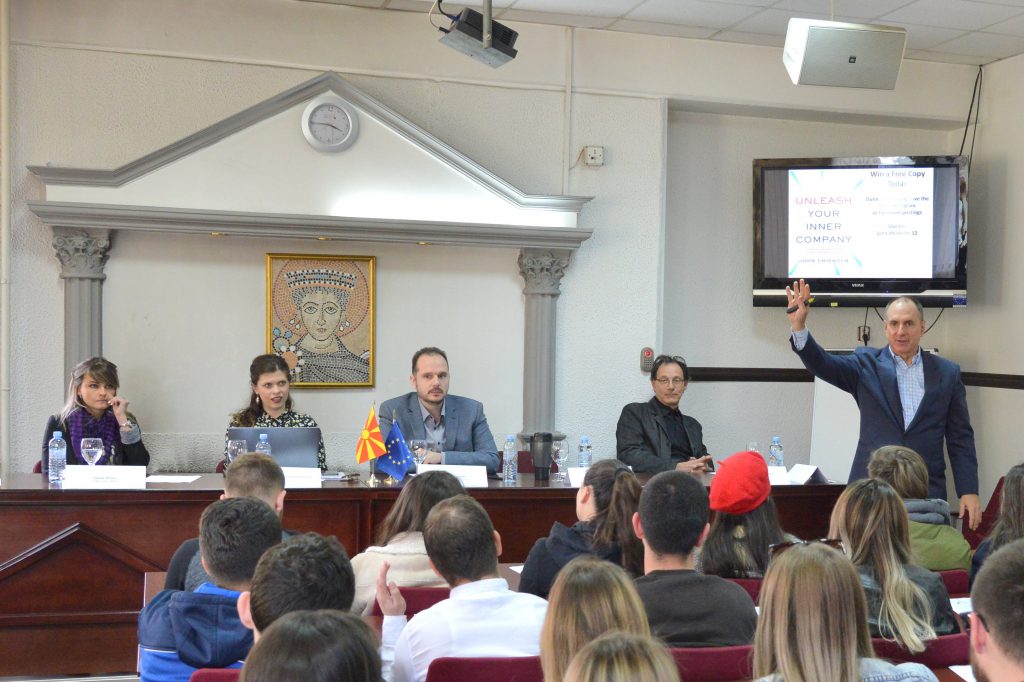
Report: Free Market Road Show in Skopje 2019
against populism
Some things never change, although they can certainly take on frightening new forms. Venezuela is a perfect example. As the country which used to be one of South America’s richest enters the final stages of socialist collapse, collectivist ideologues all around the world are once again grasping for ways to put the blame for socialism’s inherent, fatal flaws on any external factor they can find, from the price of oil to shadowy capitalist conspiracies led by American imperialists – anywhere except the place it so clearly belongs, squarely on the corrupt dictatorship of Nicolas Maduro and his predecessor, Hugo Chavez.
Fortunately, these deceptions are not going unchallenged, especially in countries that have already experienced the nightmare of collectivism first-hand. On that note Federico Fernandez, President of Fundación International Bases and a Senior Fellow at the Austrian Economics Center in Vienna, systematically debunked the mystifications and outright lies circulated by the regime’s apologists to a packed audience of students attending the Free Market Road Show at Skopje.

Taking on the most brazen lie first, Fernandez noted, “People blame the price of oil but it’s just not true.” When Hugo Chavez came to power in 1999, oil cost less than $20 a barrel, but the price almost tripled to over $50 by 2005, allowing Chavez to embark on a massive expansion of social welfare programs focused exclusively on rewarding his regime’s poor supporters. At first, as Chavez expanded his populist “Bolivarian revolution,” the price of oil kept going up, and the good times continued with more giveaways and patronage. Drawing comparisons to the movie Requiem for a Dream, Fernandez observed: “Populism is like drug addiction. In the first stages of the habit, at the beginning it’s great.”
Fluctuations notwithstanding, the price of oil has remained well above its level when Chavez first took office, reaching a peak average annual price of $109.45 per barrel in 2012; it’s currently trading around $65 per barrel. But with the inexorable logic of populist political movements, the Bolivarian regime kept on spending more and more. By the time Chavez died in 2013, Fernandez pointed out, Venezuela was spending money as if the price of oil was $197 per barrel, an eye-watering level almost twice that year’s actual average price of $105.87. No surprise, this profligate approach quickly burned through the country’s foreign exchange reserves, forcing Chavez’s successor, Maduro, to resort to increasingly repressive measures – the nightmarish second stage of the populist addiction.

Now the state resorted to the old authoritarian tactics of price and capital controls as well as fixed exchange rates that existed only in the realm of fantasy. With price controls driving goods from store shelves to black markets and shortages mounting in everything from food and medicine to industrial equipment and toilet paper, the regime doubled down again and again. The state nationalized over 60,000 private properties, including the local operations of numerous foreign companies.
Most damningly, as the financial crunch worsened, the regime knowingly destroyed its own main revenue source by turning the state-owned oil company, PDVSA, into another welfare agency, giving jobs to unqualified political supporters and appropriating oil income for social programs. As a result, there was no money left for capital investment, maintenance and the complex hydrogeological work required to keep oil fields producing. Remarkably, the country with the world’s largest proven reserves of oil saw production tumble from over three million barrels per day in 2008 to around 1.3 million per day in 2018, triggering a death spiral as lower oil incomes led to more underinvestment and neglect, sending production even lower, and so on. GDP contracted 35% from 2013-2017 – a rate of collapse, Fernandez noted, only historically exceeded in cases such as the Rwandan genocide in 1994.

Ending on a somber note, Fernandez showed the crowd of students a slide with the faces of dozens of people killed by the Venezuelan regime during crackdowns against citizens protesting shortages and repression, concluding: “It was not about the oil prices. It was socialism, and socialism always finishes like this. There’s nothing more anti-social than socialism.”
The Free Market Road Show is the biggest libertarian event in the world. Follow us on Facebook and on all social media with the hashtag #FMRS19. Do not forget to check our 2019 tour and subscribe to our newsletter at https://2019.freemarket-rs.com
